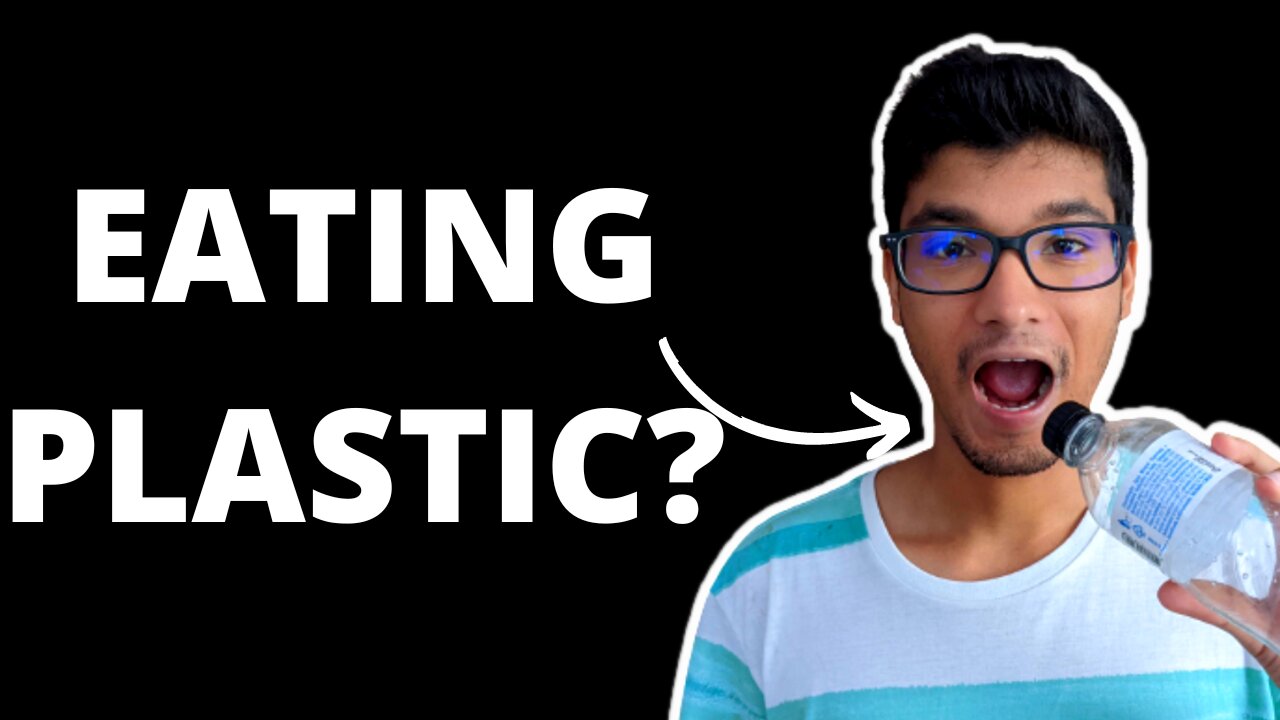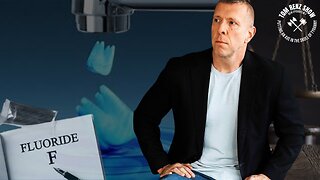Premium Only Content

We are Eating Microplastics Every Day
We eat #microplastics every day. Microplastics are actively harming human health to an extent. Microplastics and humans have a complex and toxic relationship. The link between microplastics and human health is still being widely researched. Estimates suggest that we are ingesting 5 grams of microplastics every week! Plastic pollution has already entered our human bodies and microplastic consumption has harmful human health impacts. Plastics have played a major role in food and water storage but that is one of the direct causes of our high plastic ingestion. Most microplastics we ingest are generated from the breaking of plastics we use in our daily activities and the breakdown of plastics polluting our environment by weathering and photo-degradation. Microplastics are found everywhere in the human body including the human placenta and microplastics in human cells are a common observation too.
List of 50 references used in this video - https://docs.google.com/document/d/1i5RuiIUp9sz6pC0uv7-Dv-xgTqpKq_bec0bTKIX-Aqs
Basically, if you eat or drink directly from plastic containers, bottles, or packaging - which most us do - you are undoubtedly ingesting microplastics. Microplastics are a complex and diverse set of pollutants instead of simply smaller plastics. They are a group of various types of environmental pollutants much like pesticides or heavy metals are a vast array of pollutants. Studies have reported microplastics and #nanoplastics passing through our circulatory and lymphatic systems after ingestion and inhalation. The general potential impacts of microplastics on human health are related to oxidative stress, tissue inflammation, and increased uptake or translocation. Translocation means that microplastics transport to other organs and enter our living cells. They can transport to and accumulate in the tissues of the liver, kidneys, lungs, and spleen.
So eating plastics is detrimental to health but more studies are needed for human health effects and determining optimal thresholds of exposure and toxicity. There has never been a better time to reduce our consumption of plastics and advocate for better alternatives and reduction of single use plastics. So let us work on this together because we need to improve planetary health and that of future generations. Let's tackle #plasticpollution together.
-
 LIVE
LIVE
Right Side Broadcasting Network
3 hours agoLIVE: White House Press Secretary Karoline Leavitt Holds a Press Briefing - 7/17/25
7,654 watching -
 LIVE
LIVE
Sean Unpaved
1 hour agoNo Respect for Hurts, Gillis Goes Wild, MLB Trade Deadline Buzz, & CFB's Big Question
157 watching -
 1:04:54
1:04:54
Timcast
1 hour agoCNN SHOCKED Trump APPROVAL Went UP Following Epstein Scandal
112K69 -
 LIVE
LIVE
Barry Cunningham
12 hours agoMUST WATCH: KAROLINE LEAVITT HOSTS WHITE HOUSE PRESS CONFERENCE!
1,791 watching -
 10:51
10:51
Adam Does Movies
2 hours agoI Know What You Did Last Summer - Movie Review
801 -
 LIVE
LIVE
The Tom Renz Show
1 hour agoThe DOJ Does Something! They Sue to Keep Fluoride in the Water???
167 watching -
 LIVE
LIVE
The Charlie Kirk Show
1 hour agoDefund NPR + New War in Syria? America's Military Restored| Ashkar | 7.17.25
2,597 watching -
 LIVE
LIVE
Viss
1 hour ago🔴LIVE - How to Win The Battleground with Tactics, Precision, & Knowledge!
143 watching -
 LIVE
LIVE
The Mel K Show
2 hours agoMORNINGS WITH MEL K - Redefining the Threat We Face: Who are our Allies and Adversaries Really? 7-17-25
1,036 watching -
 40:09
40:09
The Rubin Report
3 hours agoListen to ‘The View’ Crowd Gasp as Whoopi Melts Down Over Mark Cuban’s Mild Criticism of Dems
70.9K63